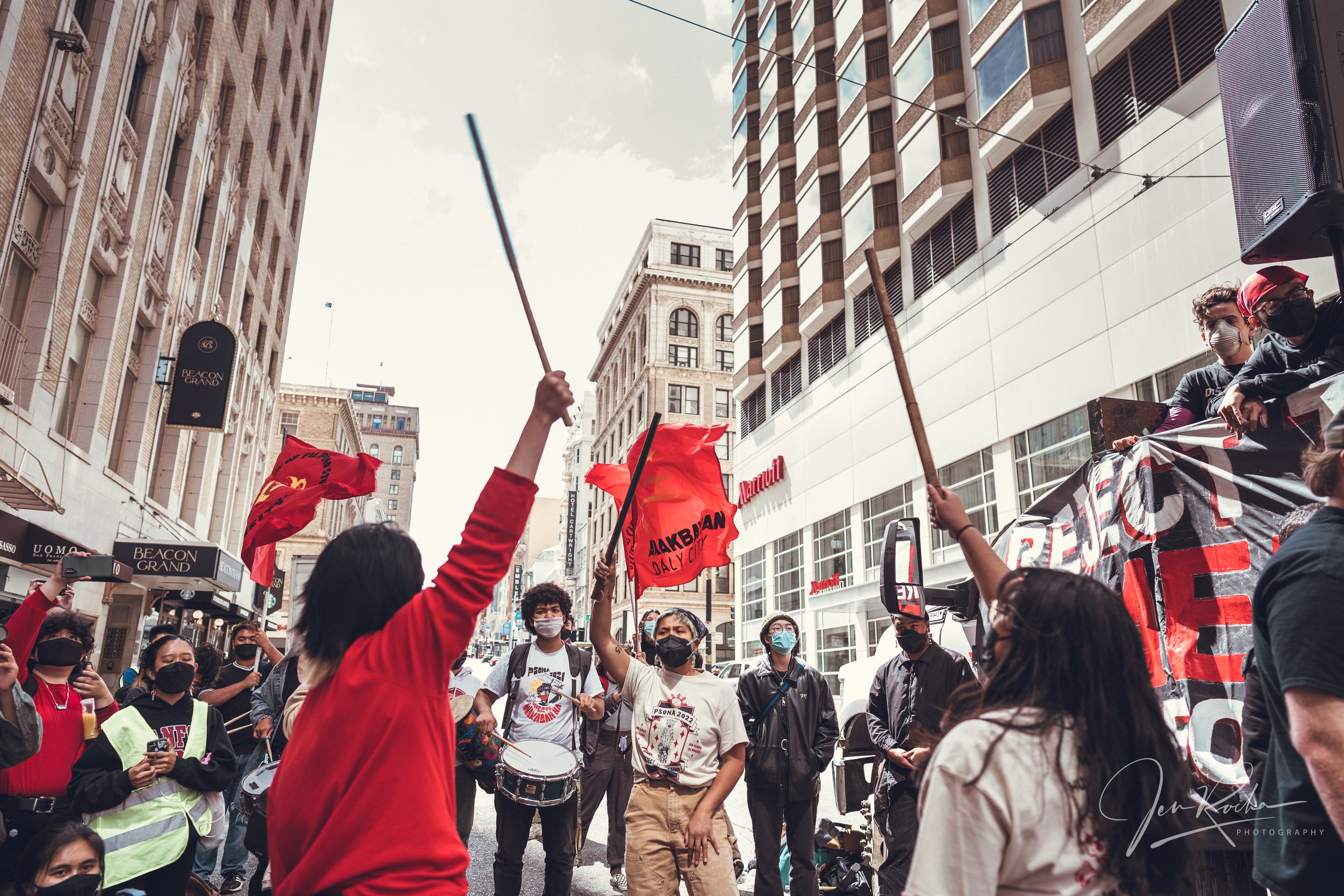The next generation of community journalists and activists is here
Youth leaders and student activists rally outside the Philippine Consulate in San Francisco on July 25, 2022. Photo: Jen Rocha
Dear Mahalaya readers,
Violence against Asian Americans, while not new in the nation’s history, only increased during the COVID-19 pandemic.
This violence took many forms: Donald Trump’s inflammatory rhetoric that fueled xenophobic and anti-Asian sentiments, verbal harassment and physical assaults on Asian elders, mass deportations of Southeast Asian refugees under the Biden administration, the disproportionate number of COVID-related deaths among Filipino American healthcare professionals, and the Atlanta-area shootings in March 2021 that killed eight people, including six women of Asian descent. As awareness about the impacts and pervasiveness of anti-Asian racism grew, so did Asian American activism and the movement to build collective political power with other communities of color.
Asian American organizers held nationwide marches, rallies, and vigils to support directly impacted people, memorialize victims, and condemn the racialized violence against Asian Americans. Students and educators advocated for ethnic studies courses and school curriculum that amplifies Asian American history. Immigrant rights coalitions mobilized to keep families together and bring an end to the mass incarceration, immigration detention, and deportation of Black and brown community members. Local organizations launched mutual aid programs to address food and housing insecurity in underserved communities. While politicians applauded the passage of the Covid-19 Hate Crimes Act, Asian American and Pacific Islander advocacy groups resisted, demanding more community-based solutions rather than symbolic measures that only maintain police and state violence and perpetuate anti-Blackness.
Asian American activism, however, is not as visible in mainstream media despite taking place over many decades. Unethical approaches to storytelling and traditional notions of objectivity that dominate the U.S. mediascape continue to shape public discourse around the diverse experiences and perspectives of Asian Americans. But journalists of color, including Filipinos, have long challenged the biased reporting, misrepresentations, and stereotypical depictions of their communities.
As a new generation of journalists based in the United States, we speak from the lens of Filipinx in the diaspora and recognize our shared responsibility to uphold the truth and organize in the face of injustice. We continue the legacy and mission of our ancestors who — undeterred by threats of censorship, red-tagging, and intimidation — used journalism to give voice to the moral and political struggle of the Filipino and Filipino American people who had long been denied their rights in the Philippines and the United States.
We are guided by the words of author and labor organizer Carlos Bulosan:
“And these are times that demand of the writer to declare his positive stand – his supreme sacrifice – on the question of war or peace, life or death. The writer who sides with and gives his voice to democracy and progress is a real writer because he writes to protect man and restore his dignity. He writes so that this will be a world of mutual cooperation, mutual protection, mutual love; so that darkness, ignorance, brutality, exploitation of man by another, and deceit will be purged from the face of the earth.”
Grounded in solidarity journalism and critical kapwa, Mahalaya embodies an alternative practice of journalism that strives to not only advocate for the rights, safety, and well-being of Filipinx but to continue to build and strengthen the Asian American social justice movement of previous generations. Let us share our stories to celebrate, heal, and above all, empower one another to engage in collective liberation and activism.
In solidarity and community,
Casey Ticsay
Editor-in-Chief, Mahalaya

